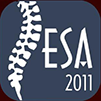Subject Area
Deformity
Article Type
Review
Abstract
Background Data: Neuromuscular scoliosis (NS) causes disorders to the spinal cord, which affects the innervation and tone of the musculoskeletal system. NS can affect the quality of life by causing spinal deformity, sitting difficulties, and back pain. Progression of NS after skeletal maturity is common, and the incidence of surgery in NS is high. Whether posterior surgical strategy in the management of NS results in higher correction and fewer complications than other approaches, either anterior alone or combined, is a controversial issue. Study Design: Systematic review of the literature. Purpose: To determine if the management of NS via the posterior approach has better results and fewer complications or not. Methods: This study was conducted using the PubMed and Cochrane databases; it includes patients treated for NS deformity and the type of surgery, degree of correction achieved, and rate of complications were reported. Results: Our systematic review yielded 104 citations with 9 studies meeting the required criteria. Six studies focused on the comparisons of posterior-only approach (POA) and anteroposterior approach (APA) and three studies on POA only regarding postoperative outcomes and complications such as correction angle of scoliosis (Cobb's angle), pelvic obliquity, lordosis, kyphosis, amount of blood loss, hospital stay and ICU stay, and operative time. Conclusion: Posterior-only approach has the same results in correction of neuromuscular scoliosis deformity as anterior-posterior approach but with fewer complications. However, the anterior-posterior approach has more advantage in correcting severe rigid neuromuscular scoliosis. (2020ESJ215)
Keywords
systematic review, Neuromuscular scoliosis, Anterior-posterior approach, Posterior-only approach, Surgical complication
How to Cite This Article
Khattab, Mohamed; Eid, Amr; and Maziad, Mohamed
(2020)
"The Posterior Surgical Approach in Treatment of Neuromuscular Scoliosis Patients: A Systematic Review of Literature,"
Advanced Spine Journal: Vol. 36
:
Iss.
1
, Article 1.
Available at: https://doi.org/10.21608/esj.2020.48902.1153











